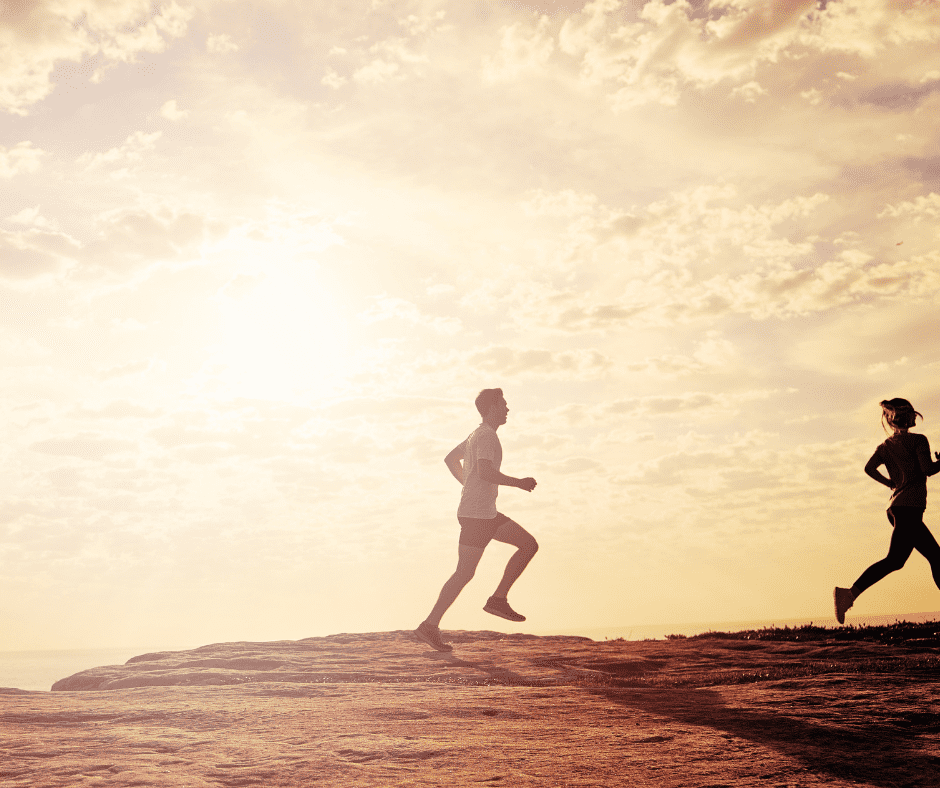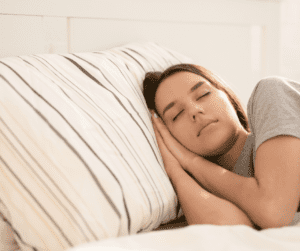Athletes indeed need more sleep compared to non-athletes, it is also true that athletes need more sleep during training periods.
Sleep becomes more important during training periods because full recovery, increasing mileage, and reducing your risk of injury all require an increase in sleep.
That invites the question… How much extra sleep do you need to have according to your long run distance?
In this article we will be answering the following questions:
- Do you need more sleep after a long run?
- How many hours a day should a runner sleep?
- Why do runners need more sleep?
- How important is sleep after a long run?
- What happens if you don’t sleep after a training session?
Let’s find out…

Do You Need More Sleep After a Long Run?
When you go on a long run three key physiological adaptations occur in your body – Enzymatic, capillary, and musculoskeletal.
You increase enzymes in your muscle cells and grow capillaries. This allows more oxygen to be delivered to your working muscles increasing your aerobic capacity. You also strengthen your muscles, tendons, and ligaments.
After this process your body needs time to repair itself and adapt to the training and that recovery process occurs while you sleep.
What is the purpose of a long run? How should you approach them? Where does it fit into your training plan? And what are the most common mistakes made on long runs? Coach Parry elaborates in the video below.
How much sleep should you be getting after your long runs…
How Many Hours a Day Should a Runner Sleep?
- Paula Radcliffe slept 9-10 hours at night during training, she also spent a few hours napping every afternoon.
- Eliud Kipchoge slept 8 hours a night and 2 hours during the day in his training to break the 2-hour marathon record.
It’s been proven that most adults require 7-9 hours of sleep per night but athletes need 8-10 hours of sleep per night.
The reason for this is…
Why Do Runners Need More Sleep?
Sleep plays a vital role in your health and your mental & physical well-being. These together contribute to improving your running performance.
Sleep is extremely important for runners because without getting an adequate amount of good quality sleep runners are at a higher risk of developing long-term health problems, their ability to think, react, learn and engage with others will decrease, and their circulatory system, metabolism, respiratory system, and immune system will also be affected negatively.
Being in a sleep debt will negatively affect your running performance and getting extra sleep will improve your running performance.
An increasing amount of research suggests that runners need more slow-wave sleep if they want to increase their speed. This is because slow-wave sleep is the most restorative stage of your sleep.
On that note, let’s find out how important getting some sleep specifically after a long run is…

How Important Is Sleep After a Long Run?
To fully benefit from your long run getting quality sleep is vital. You need to allow your body to recover because without it you won’t reap the full physiological benefits of your training session.
In this article, we have a detailed look at reasons why prioritizing sleep will improve your running… Click Here.
What Happens If You Don’t Sleep After Working Out?
Not getting an adequate amount of sleep affects both your physical and cognitive function which will have a significant impact on your running preparation, performance, and recovery.
Numerous studies show us that improved brain processing functions in athletes are linked to athletes who prioritize sleep, this is because decision-making and adaptability are key factors to improved performance.
Allowing yourself time to recover after your runs is what makes it possible for you to come back better adapted for your next run… That’s why we’ve created a Practical Guide To Running Recovery for you.

When you’re training for a specific event, (particularly in the 6-8 weeks of peak training) try and prioritize sleep and try to get 30 to 60 minutes more than you would normally get.
That little bit of extra sleep will make a big difference to your recovery, however, what will make even more of a difference is when you go to sleep and how you prepare your sleep environment.
We tell you how to prepare your sleep environment in this article.
We encourage you to make a few small changes that will go a long way in positively impacting your recovery and in turn your running performance.
Sleep plays a vital role in your health and your mental & physical well-being. Let’s have a look at why sleep is EXTREMELY important for runners…



Comments are closed.